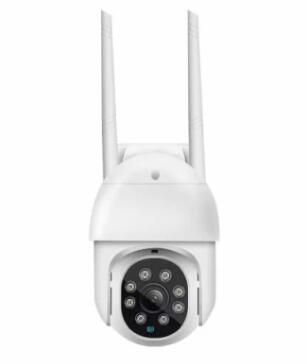The Watchful Eye: Exploring the Impact of Surveillance on Human Behavior
2023-12-05
Introduction:
In an era where surveillance cameras dot urban landscapes, workplaces, and public spaces, the watchful eye of technology has become an integral part of modern life. The presence of surveillance has the power to shape human behavior, fostering both a sense of security and, for some, a feeling of scrutiny. In this blog post, we will delve into the multifaceted impact of surveillance on human behavior, examining how it influences individuals and societies in various contexts.
1. Deterrence and Public Safety:
- Crime Prevention:
- The mere presence of surveillance cameras can act as a deterrent to criminal activities. Knowing they are being watched, individuals may think twice before engaging in unlawful behavior, contributing to a safer environment.
- Increased Public Safety Perception:
- Surveillance systems, particularly in public spaces, can enhance the perception of safety among citizens. The feeling of being monitored can instill a sense of security and encourage law-abiding behavior.
2. Social Control and Compliance:
- Normative Behavior Reinforcement:
- Surveillance has the power to reinforce social norms and acceptable behavior. Individuals are more likely to conform to societal standards when they know their actions are under observation.
- Reduced Deviant Behavior:
- The awareness of surveillance can lead to a reduction in deviant or anti-social behavior. This extends beyond criminal activities to include adherence to social etiquette and community norms.
3. Workplace Productivity and Accountability:
- Employee Accountability:
- In the workplace, surveillance can promote accountability among employees. Knowing that their actions are monitored may lead to increased productivity and adherence to company policies.
- Deterrence of Unethical Conduct:
- Surveillance acts as a deterrent against unethical conduct in the workplace. This includes activities such as harassment, theft, and other behaviors that can harm the work environment.
4. Privacy Concerns and Behavioral Changes:
- Self-Censorship:
- The awareness of being under surveillance can lead to self-censorship, where individuals modify their behavior to align with perceived societal expectations or avoid scrutiny.
- Reduced Spontaneity:
- Concerns about privacy and surveillance may lead to a reduction in spontaneous behavior. Individuals may become more cautious and calculated in their actions to avoid unwanted attention.
5. Social Trust and Community Dynamics:
- Enhanced Trust in Public Spaces:
- In public spaces, surveillance can contribute to enhanced trust among citizens. The presence of cameras can create a sense of collective responsibility and discourage behaviors that may harm the community.
- Community Policing Support:
- Surveillance systems, when embraced by communities, can support community policing efforts. Residents may feel empowered to actively contribute to the safety of their neighborhoods.
Conclusion:
The impact of surveillance on human behavior is a nuanced interplay between security, privacy, and societal norms. While it can contribute to public safety, the psychological effects and concerns about privacy underscore the need for a delicate balance. As technology continues to evolve, society grapples with finding the right equilibrium that ensures safety without compromising individual freedoms. The watchful eye of surveillance, with its potential to shape behavior, prompts important conversations about ethics, privacy, and the evolving nature of societal norms in our interconnected world.



